Posted in Featured
January 17, 2014

 “We have to rid ourselves of the notion that innovation relies on the genius of an individual. We produce and innovate together only in networks.”
“We have to rid ourselves of the notion that innovation relies on the genius of an individual. We produce and innovate together only in networks.”
– Michael Hardt and Antonio Negri, Multitude: War and Democracy in the Age of Empire
This is our second post about the Social Justice Funders Network. Read the previous post here.
- How might women of color working in philanthropy support each other in nurturing our radical selves?
- How might funders advance racial justice and racial equity conversations in our philanthropic institutions in order to inform our practice?
- What is the appropriate role for foundations in support of movements and movement building?
- How might we be stronger allies to and supporters of youth organizing?
Read More
January 15, 2014

|Photo by Christian|www.flickr.com/photos/91048408@N00/322951661/lightbox/?q=vision|
For the past year, Carole Martin and I have been co-facilitating a “network leadership program” supported by the Neil and Louise Tillotson Fund called the Community Practitioners Network (CPN). The overall goal of CPN is to further develop a group of proven and promising leaders as individuals, as a cohort, and as “critical yeast and connectors” (my language, not the Fund’s) in support of community and economic development in a region that encompasses northern New Hampshire, northeastern Vermont, northwestern Maine, and southern Quebec. Throughout, we have been actively exploring a variety of leadership and network development practices for growing personal and interpersonal awareness, connectivity, alignment, resolve, resilience, and skillfulness.
In our most recent session, a two-day retreat in Pittsburg, NH, we engaged in discussion about and embodied practice of “vision.” Over the course of the two days, a robust conversation evolved about what makes vision powerful (in light of many uninspiring experiences) and its relevance in a networked world, in combination and contrasted with values. Read More
January 14, 2014
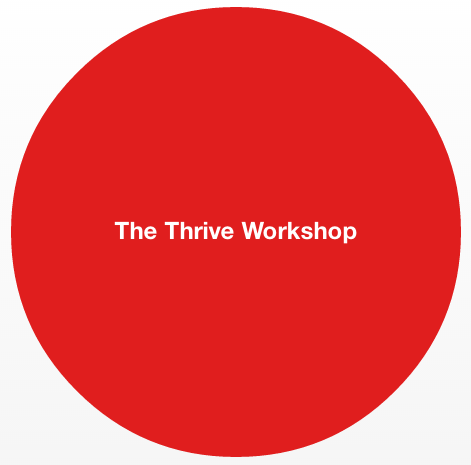
When I told Ceasar about the Thrive Workshop he was excited about it. I remembered that when we interviewed him to become President of the Interaction Institute for Social Change he talked about his ongoing work at MIT. He described the university as a place that is focused on making things work in the real world. That certainly is IISC’s orientation. And it definitely is what the Thrive Workshop is all about.
Thrive is not for everyone. Thrive is for you if you are bursting with an idea and you just can’t get yourself to make it happen. Thrive is meant to get you started. Thrive is about getting you out of your head and into the real world. Read More
January 13, 2014

At IISC, we began the year with some heavy-duty thinking. We’ll be writing about those ideas in future posts. Today, I want to tip my hat to my colleagues and to IISC’s Board of Directors. After spending a day on Board business, our Board members spent a day with the staff thinking about emerging new directions for IISC.
Read More
January 6, 2014
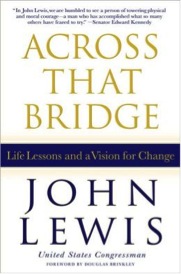
The most inspiring book I read in 2013 was Across that Bridge: Life Lessons and A Vision for Change, by Congressman and Civil Rights legend, John Lewis. He built the book around several practices that are essential for social justice work: faith, patience, study, truth, peace, love and reconciliation. Read More
December 23, 2013

The following blog post was written by our friend Julie Quiroz at The Movement Strategy Center. We hope you enjoy it at as much as we did!
Remember this spring, when the Associated Press finally dropped the I-word, and youth of color defeated prison-to-pipeline policies in Los Angeles public schools?
Or remember back in February when 50,000 people rallied in DC against the XL Pipeline? And then in October when the protests of 5,000 young people linked the pipeline, fracking, and the whole mess of fossil fuel development?
Read More
December 17, 2013

Stowe Boyd has posted a provocative and largely resonant manifesto on the future of work. Our ways of doing business are thoroughly obsolete, “only 29% [of workers] are actively engaged with work.” If this obsolescence is true for the private sector, it is even more true for those of us who work for justice.
Read More
December 16, 2013
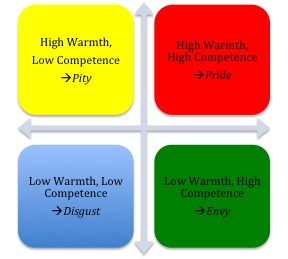
Last Friday, Curtis posted a clip by Brene Brown. She argues that “empathy fuels connection, sympathy drives disconnection.” I want to take her thinking one step further. Empathy fuels connection. Lack of empathy fuels injustice.
Read More
December 12, 2013
 Over the past five years or so of supporting self-declared “networks” for change, I have evolved in my understanding of what is new when we call something a network, versus a coalition or collaborative or alliance. On the surface, much can look the same, and one might also say that coalitions, collaboratives and alliances are simply different forms of networks. Yes, and . . . I believe that what can make a big difference is when participants in a network (or an organization, for that matter) embrace new ways of seeing, thinking, and doing. So let me propose that network approaches at their best call on us to lead with some of the following: Read More
Over the past five years or so of supporting self-declared “networks” for change, I have evolved in my understanding of what is new when we call something a network, versus a coalition or collaborative or alliance. On the surface, much can look the same, and one might also say that coalitions, collaboratives and alliances are simply different forms of networks. Yes, and . . . I believe that what can make a big difference is when participants in a network (or an organization, for that matter) embrace new ways of seeing, thinking, and doing. So let me propose that network approaches at their best call on us to lead with some of the following: Read More
December 11, 2013
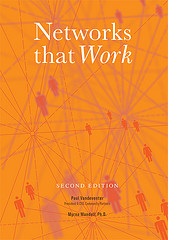
I’ve spent time the past week reading through Networks that Work, a handy and concise resource for developing organizational networks, written by Paul Vandeventer, President and CEO of Community Partners, and Myrna Mandell, Ph.D. The book lays out some very helpful pointers for more formally constructed networks. I have highlighted 10 points below that resonate with our experiences at IISC around supporting organizational networks for social change. My comments and extensions are in italics: Read More
December 9, 2013

Even before I read in the Boston Globe that trust is at an all-time low in the U.S., I was planning to write about trust. Our colleagues at Interaction Associates have been tracking the connection between leadership, trust and business performance for years. Their 2013 Trust Report reinforces earlier findings that higher levels of collaboration, trust within a company are correlated with higher performance.
Read More
December 4, 2013
“Ultimately if we are to avoid failure in the most critical work of this century, the deepest reaches of our beings must be brought to bear in honestly reevaluating and shifting the most basic structures of our society.”
– john a. powell
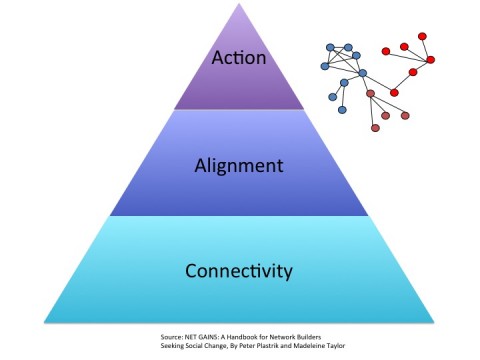
The following is a textual recapturing of a Pecha Kucha-like presentation that I gave at an ARNOVA Pre-Conference Session in Hartford, CT two weeks ago. This was part of a 3-hour interactive conversation, co-designed and facilitated with Dr. Angela Frusciante of the William Caspar Graustein Memorial Fund, focusing on the power of networks for learning and social change, primarily with academic researchers and philanthropists.
At the Interaction Institute for Social Change, we are in agreement with Professor john a. powell when he points to the need to consider and make fundamental structural changes in our country and communities for the causes of greater social justice and sustainability. Read More

![]() “We have to rid ourselves of the notion that innovation relies on the genius of an individual. We produce and innovate together only in networks.”
“We have to rid ourselves of the notion that innovation relies on the genius of an individual. We produce and innovate together only in networks.”






 Over the past five years or so of supporting self-declared “networks” for change, I have evolved in my understanding of what is new when we call something a network, versus a coalition or collaborative or alliance. On the surface, much can look the same, and one might also say that coalitions, collaboratives and alliances are simply different forms of networks. Yes, and . . . I believe that what can make a big difference is when participants in a network (or an organization, for that matter) embrace new ways of seeing, thinking, and doing. So let me propose that network approaches at their best call on us to lead with some of the following:
Over the past five years or so of supporting self-declared “networks” for change, I have evolved in my understanding of what is new when we call something a network, versus a coalition or collaborative or alliance. On the surface, much can look the same, and one might also say that coalitions, collaboratives and alliances are simply different forms of networks. Yes, and . . . I believe that what can make a big difference is when participants in a network (or an organization, for that matter) embrace new ways of seeing, thinking, and doing. So let me propose that network approaches at their best call on us to lead with some of the following: 

